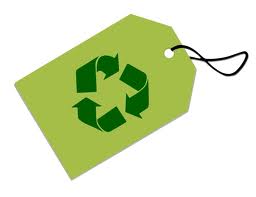Project aims to improve characteristics of recovered fibres
An EU project is aiming to enhance the properties of recovered fibres for new functional packaging products and reduce the need for virgin fibre.
The Fibre+ project (Innovative Paper Packaging Products for European SMEs Based on Functional Modification of Recovered Fibres) also aims to support the competitiveness of SMEs in the EU packaging sector.
The hope is to alter the physical and mechanical properties of recycled papers that are more recyclable, less hygroscopic, stiff and durable which could lead to further cycles in the chain.
Project benefits
The Confederation of European Industries (CEPI) is the coordinating association and coordinator Dr Eugenio Cavallini, CEPI Technical Manager, told FoodProductionDaily.com the project offers recyclability and sustainability benefits.
“The packaging industry could be able to widen the spectrum of recycled fibres used and by using enhanced fibres savings could be in the supply chain.
“We are looking at the recycled fibres and the enhancement of their chemical and physical characteristics for further use in paper products.”
Recovered fibre modification capable of improving physical- chemical properties of recycled papers is currently being studied in the project which started at the end of last year and runs until November 2015.
Fibre improvement treatment
Research will focus on potential treatments for fibre improvement, exploring new possibilities for cost reduction (energy and raw material efficiency) and quality increase in packaging design.
The project of 10 consortium partners will proceed with the selection of the best modification treatments that will be validated on a pilot plant and then implemented on industrial scale, during the demonstration phase.
It will also identify uses of enhanced modified fibre papers by comparing the state-of-the-art and the results of Fibre+ technology in corrugating packaging SMEs.
Cavallini said problems at the moment centre around the quality of the recycled fibres and the consistency of the supply.
When asked about the end goal of the project, he added: “I would like to have an improvement in mechanical and physical characteristics of recycled fibres in order to see the packaging sector have in their hands, better and lower cost materials to make a better use of packaging as protecting and containing a product.”
In his first experience as a project coordinator, Cavallini added that he was happy with progress so far and praised the support of the European Commission and the project partners in terms of fostering competitiveness of SMEs and working together all over Europe.
Training the staff of all the participants and disseminating the results to interested corrugated packaging SMEs will be the final stage.
Other partners are FEFCO, the Technical University of Larissa (Greece), the Georg-August University of Goetting (Germany), the Complutense University of Madrid (Spain), Innventia (Sweden), the Polish Packaging Research and Development Centre, COBRO and Rapina Paper Mill (Estonia), Pargianas Nikolaos & C o. Chemicals (Greece) and DS Smith Packaging Italia (Italy).

































